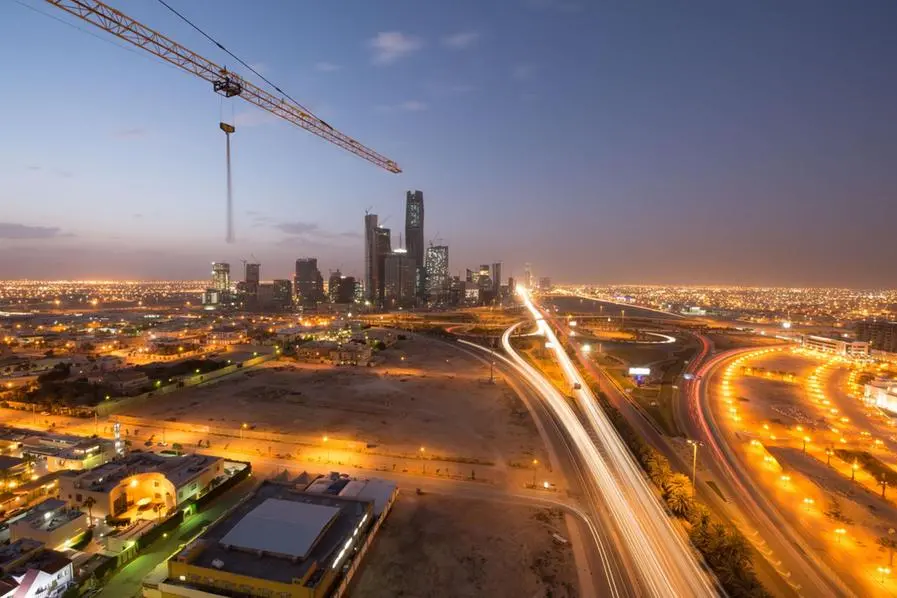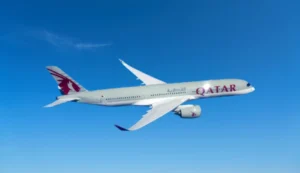Saudi Arabia’s booming hospitality sector to add 320,000 hotel rooms by 2030
Saudi Arabia is set to expand its hospitality sector significantly, adding 320,000 new hotel rooms by 2030 to cater to the projected influx of 150 million domestic and international tourists annually. This expansion, highlighted in a new report by global property consultancy Knight Frank, will bolster the nation’s travel and tourism industry, which currently contributes nearly six percent to Saudi Arabia’s GDP. The government’s goal is for tourism to account for 10 percent of the economy by 2030.

Image Source: cbnme.com
Record Visitor Numbers and Tourism Spending
The expansion follows a record number of visitors to Saudi Arabia in 2022. In the first half of 2023, tourism spending reached $23.2 billion (SAR 87 billion), a 132 percent increase compared to the same period in 2022. Additionally, the Kingdom saw 14.6 million international arrivals in the first six months of 2023, a 142 percent year-on-year increase, marking the strongest half-year performance for its tourism industry.
Key Source Markets and Future Targets
The growth has been driven primarily by visitors from Gulf nations such as Bahrain, Kuwait, and Egypt, which are the top source markets for foreign tourists. However, Saudi Arabia aims to attract more visitors from further afield.
“With a target of welcoming 150 million visitors by 2030 – a 50 percent increase from its previous goal – the government is actively exploring strategies to attract international travelers,” said Turab Saleem, partner and head of hospitality, tourism, and leisure advisory at Knight Frank Middle East. This includes developing cultural and entertainment offerings to complement existing attractions like the Jeddah F1 Grand Prix and various ‘Entertainment Seasons.’

Major Entertainment Projects
Upcoming entertainment projects include theme parks like Boulevard World in Riyadh and other parks licensed by the Saudi General Entertainment Authority. The Kingdom’s successful bid to host World Expo 2030 in Riyadh is expected to attract 40 million visitors during the six-month event, injecting $94.6 billion into the Saudi economy, according to Rajhi Capital.
Hospitality Sector and Workforce Needs
Knight Frank projects that 67 percent of the new hotel rooms will be upscale or luxury 4 and 5-star properties, which typically require 1-2 staff members per room. This indicates a need for between 232,000 and 387,000 tourism workers, necessitating adequate accommodation for hotel staff.
Shifts in Hotel Operator Landscape
Currently, Accor is the largest hotel operator in Saudi Arabia by room count, but Knight Frank expects Marriott International to become the largest by 2030, managing 26,200 rooms compared to Accor’s projected 25,400.
“Provision of quality housing for hospitality staff will be essential to ensure the success of Saudi’s tourism ambitions,” said Faisal Durrani, Partner and Head of Research at Knight Frank Middle East. Proper worker accommodation is crucial for attracting and retaining employees and can offer yields around 10 percent for investors.

Religious Tourism Development
Knight Frank’s report also highlights the significant development in Saudi Arabia’s holy cities, Mecca and Medina, where an estimated 221,000 new hotel rooms are planned or under construction. This includes 40,000 rooms in the Masar Mecca project and 39,000 rooms under the Thakher Development project, representing over 24 percent of Saudi’s total expected hotel additions by 2030.
Financial Implications
The extensive hotel development will require significant investment, with Knight Frank estimating $104 billion in construction costs for the 320,000 new hotel rooms across the country, including $70 billion for the 221,000 rooms in Mecca and Medina.
Serving Religious Pilgrims
The expansion aims to accommodate the growing number of religious tourists, with 30 million expected to visit the holy cities annually by 2025. This figure is projected to rise to 50 million by 2030, reinforcing Saudi Arabia’s status as a global hub for religious tourism.






